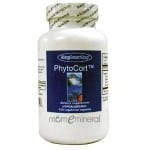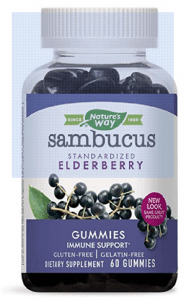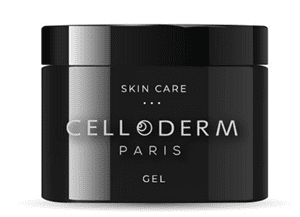 No one doubts that not being able to breathe can be a scary time, but can something like Phytocort offer any help? The manufacturers hope that you’ll think so, but we’re here to size it up and see if it is something you should swallow or not.
No one doubts that not being able to breathe can be a scary time, but can something like Phytocort offer any help? The manufacturers hope that you’ll think so, but we’re here to size it up and see if it is something you should swallow or not.
Overview
Phytocort is made by a company called Nutricology. Nutricology makes plenty of other health related products using herbal ingredients. They say that they have been around for 30 years and that they maintain high quality control standards in all of their products.
It is also distributed and labelled by a company called Allergy Research Group. This raises a red flag as it seems like they are intentionally trying to sound official, while not being so at all.
The Claim
Phytocort claims to use a combination of four different natural ingredients in order to treat conditions such as asthma and other breathing troubles.
These four ingredients are reishi, shrubby sophora, Chinese licorice, and noni. While it’s true that these are natural ingredients, this does not mean that they are innately safe. The site cites a double-blind study that tested against a placebo that showed these four ingredients, when combined, lead to reduced reactions from asthma and allergy sufferers.
At first glance this may seem like Phytocort is a winner, but a deeper analysis shows that this study doesn’t quite relate to the product directly.
The Hype
There isn’t a lot of hype on Phytocort yet, as they don’t appear to be spending a ton of money on advertising and promotion for this product. Basically, these companies have established themselves as purveyors of all-natural and herbal remedies, but they are trying to give it as much of a chance as possible by making it sound medically based.
The Cost
Phytocort costs over $40 for a one month supply. If you follow their protocol your first bottle will not last the entire month because you are required to take more of the pills at the beginning than you will later on.
The Commitment
The makers of Phytocort recommend taking it in larger doses at first so that you can get a good amount of the ingredients into your system, and then you can start a maintenance phase.
Evaluation
The studies that were referred to in which the ingredients that are included in Phytocort were shown to provide relief to allergy and asthmatic symptoms were not done on Phytocort itself.
This is the same as citing a report that says that bananas, apples, pears, and grapefruit all mixed together gives you energy and then making a product with these four fruits and then saying “Look! our product has been clinically tested.” This is not true at all, because no one has analyzed whether you have the right mix in your product or not. There is no guarantee that you are following the same protocol that they did in the study, so it is not right to use this as proof that your product works.
A Proprietary Blend
It is important to reiterate that the study they are mentioning was not done on Phytocort directly. Phytocort just happens to be a product that contains the same four ingredients that were mentioned in the study. Therefore, it should not be assumed that the product will have the same effect as the study showed.
Many drug and herbal manufacturers out there use the term “proprietary blend” as a way of making a product sound like it has some secret mix that no other product has. In actuality this just means that the company owns the rights to this specific mixture. It doesn’t mean that this mixture of ingredients is any better or any worse than another product with the same or similar ingredients.
A Note on “All Natural”
Products that use all natural ingredients pretty much start off with two strikes against them. They are totally unregulated and consumers think that just because the ingredients are all natural that they are safe. You can still have adverse reactions and side effects from large concentrations of herbs and plant products that aren’t normally introduced to the body.
Another red flag for Phytocort is their one-size-fits-all dosing instructions. They don’t provide any sort of calculations for different body sizes, or for men and women. Since lung size will vary from person to person, especially for a six foot, three hundred pound man, and a five foot, one hundred pound woman, there’s just not enough medical basis to say that everyone should take the same amount no matter what.
Final Phytocort Review
It is unlikely that Phytocort provides any results, although some people have claimed to use it and have noticed that their condition has improved. The manufacturers state that you should take it under the supervision of your physician, but it will probably be hard to find a doctor that recommends it. If you do, make sure they take into consideration your size and weight and help you determine how much you should take, and for how long.
Our Recommendation
Take a pass on Phytocort. There’s no saying what these herbal ingredients are doing to your body, especially since they suggest that you load up on them during the first phase before you can get to a maintenance phase. Although asthma and allergies that constrict your breathing can be scary, it’s important not to jeopardize your overall health. The desire may be strong to get off of prescription drugs, but don’t fall victim to products like Phytocort.




HI Michael, where do you get your Ma Huang from? I’ve been searching for it and best I can find is loose powder. Do you have a source for capsules? I’m sure you know it’s been banned in the US. I don’t mind buying overseas if I could only find a source. Thank you.
No Phytocort made me sicker after a couple of weeks ! Do not take this product if you have a severe COPD . I had to stop after 3 weeks .
I Have Been Taking PhytoCort Going On 3 Years, I Take 8 to 12 Capsules a Day, It’s One Of Two TCM’s I Take Everyday ! Its Works Very Good, I Take Ma Huang Also, I’m Taking Resrin & Getting Ready To Start Mucolyxir-nanotech-nutrients-12-ml-0.4-fl.-oz.This Is Also Available At NutriCology !!! I Have a Very Severe Breathing Issue, It’s The Very Best !!! Everyday Happy
Hello…
Just wanted to thank you for your enlightening response to the Phytocort article…. because I am an RN I try to research as much as possible and look for natural alternatives to prescription drugs as I tend to react badly to many…
I developed bronchiectasis… from a mold infection in my lungs followed by years of repeated asthma, chronic bronchitis and pneumonia symptoms… and am overly reactive/sensitive to most inhalers and especially the tablet Singulair… I feel like I am being poisioned when I have to take them… so that leaves Prednisone as an alternative… I have been trying the Phytocort… it is a little helpful with the SOB… but I am anxious about how much to take… I am 65 / 340 lbs… so I will keep playing with the dose… (I know lose wt)
There are two products OTC.. that I find helpful, if you choose to review them…
1. Breath Free Chi…(Forever Health) recommended by a pharmacist in Florida when I was there and having problems with the high humidity causing SOB… I found it very helpful… but can take only 1 cap at a time it increases my BP slightly…
2. Mucolyxir… (Nutricology).. drops taken daily to help keep mucus thinned… I use it instead of Muscinex tablets….
Thanks for you time and input… I think I understand better now the use of the PhytoCort and how to know if a supplement is useful or not… hopefully the PhytoCort will kick in and help now that the summer hot weather has kicked in… I live in St Louis, Mo.
Sincerely,
Christy VonRonnakirk
I have had lung problems all my life. I now have COPD, when I get an exacerbation I end up in the emergency room and get prednisone; I had a 7 level cervical fusion and the last thing I need is a drug like prednisone in high doses repeatedly. The fusion is screwed into the bones of the spine, the cervical spine controls your arms, your legs, and your breathing. If I continue to get periodic bursts of prednisone I feel it will kill me. I know it causes liver disease which I now have, diabetes which I am fighting not to get directly from the prednisone. Although they tell me it shouldn’t do this and that I find that I get all the side effects of this horrible drug. Last winter I took phytocort when I felt an attack coming on and for the first time in my life I got through the entire winter without an emergency. I’m taking my chances with the side effects of phyto cort over the horrific side effects of prednisone. I need my neck to stay fused. The doctors just shake their head and say it shouldn’t bother you????????????????? Listen to some of the patients stories about steroids. Never mind the weight gain and fluid retention.
Tim
The mere fact that the author doesn’t know that Allergy Research Group & Nutricology is the same Company says alot about their ability to properly research anything.. I am a Naturopathic Physician. I came across Phytocort back in 2012 after having a severe chronic allergic reaction to some medicine used during surgery on my hip. I suffered for 6 months, being rushed back and forth to the hospital because my entire body kept swelling up and I would turn purple. Prednisone worked temporarily, but caused major side effects. I went to the top Allergists in the Atlanta Metro and everyone was totally stomped, which left me, as a physician, to figure this out on my own….. I found out info on Phytocort and then checked on of the major pharmacies our Clinic is affiliated with and they carried it… Two days after I started taking Phytocort, all of my allergies, swelling and symptoms totally dissappeared. I shared this with all the Allergists who tested me and many of my colleagues. They were in shock and started using it for their patients(speaking of Allopathic MDs btw). I decided to take up additional post graduate medical training to treat Allergies and Phytocort is the #1 prescription we use for both Allergies and Breathing problems….We also use it on Sickle Cell Patients who suffer from frequent Acute Chest syndrome and total improvement of their conditions occur(I have sickle thalassemia btw)…
The other issue here is that this wanna be researched obviously doesn’t know that there is a difference between OTC herbal supplement that treat symptoms and are not regulated or manufactured under FDA supervision, as opposed to actual FDA, cGMP certified Natural Medicines which only a licensed/qualified healthcare professional can authorize for their patients(those selling it on places like Amazon do so deceptively and in hiding, as its not only unethical, but it can also lead to the practitioner having his relationship to prescribe natural medicines terminated. Like other Standardized Therapuetic Natural Medicines, they are carried by pharmacies that are FDA, cGMP, NSF Compliant such as Emerson Ecologics, Craneherb Pharmacy etc… Only those natural medicines which are clinically researched and manufactured according to FDA, cGMP standards carry either the cGMP or FDA logo. If neither of these logos are on the bottle or the manufacturer doesn’t enlist such on their site, then the product is fake, potentially harmful & has no therapuetic value….
With that being said, OTC supplements without the cGMP or FDA registration are akin to what Tylenol is…If you were in major car accident you wouldn’t see Tylenol for pain. You’d seek a more potent therapuetic pain medicine that is prescribed by physician. Phytocort is in fact manufactured under FDA, cGMP standards…. So this article is garbage because the important factors that should be known a legitimate researcher is fully missing. Thus i’d recommend not even taking this article serious, because its based on sheer ignorance and a lack of understanding how Natural Medicine vs OTC supplements actually work
Oops. I forgot to mention a single, small Phase I Phase I dose escalation study (PMID: 19586409, Safety and tolerability of an antiasthma herbal Formula (ASHMI) in adult subjects with asthma: a randomized, double-blinded, placebo-controlled, dose-escalation phase I study. Kelly-Pieper K, Patil SP, Busse P, Yang N, Sampson H, Li XM, Wisnivesky JP, Kattan M. J Altern Complement Med. 2009 Jul;15(7):735-43. doi: 10.1089/acm.2008.0543), by the same group of authors.
Describing it as “small” is perhaps generous, for a 1 week study with 12 subjects (8X/4C). Describing it as a Phase I safety trial is also perhaps generous, considering that a 1 week trial period in no way approximates how the drug is likely to be used in asthma (although, to be fair, in this study the subjects were all healthy volunteers).
I should have said there have been no subsequent Phase II/III studies.
A few final notes on Phytocort and the originally cited study- no subjects were diagnosed with ABPA; treatment in placebo arm is not comparable to that for ABPA, which involves multi-therapy with anti-fungal meds and higher dose of systemic prednisone; and the study period was very short (4 wks). These study results are not generalisable to ABPA, even if Phytocort was equivalent to the study drug, ASHMI.
Nonetheless, the commenter with ABPA has my continued good wishes for health.
Nicely done! Thanks. Clearly explained in simple terms.
However, a nit. You say
The cited 2005 study (using ASHMI, PMID:16159618) uses a proprietary mixture of 3 component TCM herbs only; there is no Noni in it.
The study has not been widely cited in the 10 years since it’s publication. Fully 1/2 of related citations (12 of 25 total) are by authors of the original study. There have been no replications nor additional clinical trials, although a single, small Phase II efficacy trial was registered in 2008, then apparently abandoned in 2009 (ClinicalTrials.gov, .Archive NCT00712296) with no results posted.
It’s unwise to make treatment decisions based on a lone study.
As a side note, the authors’ company’s patent applications* (view EU version w pdf dated 13 Mar 2005, published 12 Dec 2012 at https://encrypted.google.com/patents/EP2532353A1?cl=en ) make very interesting reading, allowing for the inclusion of adjuvants and carriers…likely to alarm alt-med users. Think: Aviridine (N,N-dioctadecylN’N’-bis(2-hydroxyethyl)propanediamine), aluminum hydroxide and peanut oil, for instance. Or sugars such as lactose, glucose and sucrose, and perfumes and colourants (dyes) at the discretion of the formulator. Wow! So much for “natural.”
Note that the authors disclose potential COIs with respect to the patent application (although there were actually 2 patents, on the same date). They do not disclose, however, that 2 authors are part-owners in the same LLC company that holds the patent. The patent appears to have been filed, and the company founded, after collecting data but before peer-reviewed publication.
Further, on examining the patent formula:
An herbal formula for treating or lessening the severity of asthma, wherein said formula comprises an herbal mixture consisting of Ling-Zhi, Ku-Shen and Gan-Cao.
The herbal formula according to claim 1, wherein said herbal formula contains about 9 to 40 grams of Ling-Zhi.
The herbal formula according to claim 2, wherein said herbal formula contains about 3 to 15 grams of Ku-Shen.
The herbal formula according to claim 3, wherein said herbal formula contains about 1.5 to 9 grams of Gan-Cao.
Each capsule of Phytocort contains, per the label, 1600 mg of a proprietary blend of the 3 components of AMSHI, plus the noni, as well as “other ingredients”: hydroxypropyl methylcellulose and L-leucine.
How on earth is one to determine what amount of which substance in what form (powdered root, bud, stem, leaf or extract, e.g.) at what potency is even in the Phytocort capsule? Or if it bears more than passing resemblance to the combination in the study? Certainly the label sheds no light.
Even NIH’s NCCIH (formerly NCCAM, a bastion of quackedemic medicine), says that herbals and other alternative treatments for asthma are not recommended https://nccih.nih.gov/health/tips/asthma
End of (abbreviated) rant. I guess I’d have to count myself among the skeptics.
That said, I’m happy for the previous commenter’s improved health, and wish them continued well-being.
Thanks again for taking a look at Phytocort.
Works for me. My diagnosis is allergic bronchopulmonary aspergillosis. Alternatively, standard of care is 50 mg prednisone daily, with its attendant side effects, followed eventually by pulmonary fibrosis and early and very unpleasant death[1]. $25 to find out otherwise strikes me as a good bet for anyone in this situation and any asthma sufferer.
[1]http://www.ncbi.nlm.nih.gov/pubmed/3516103